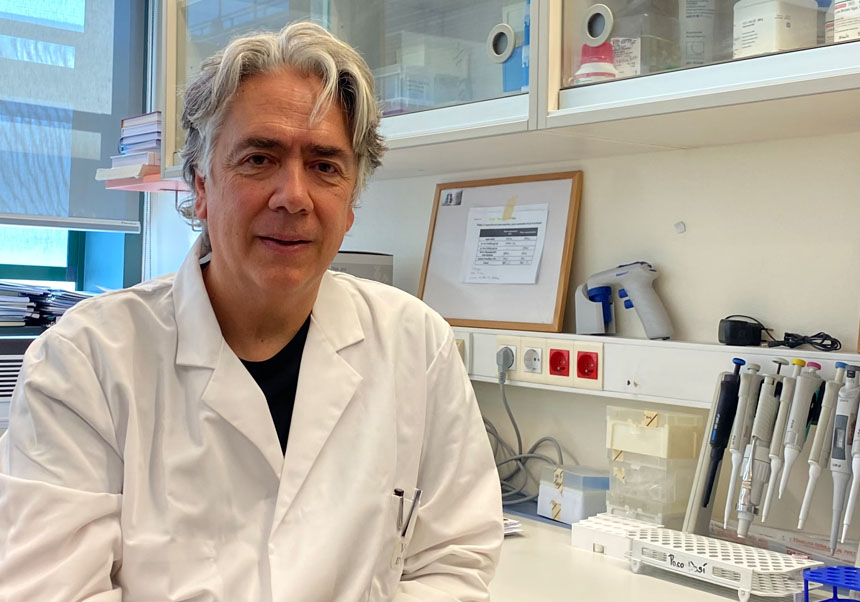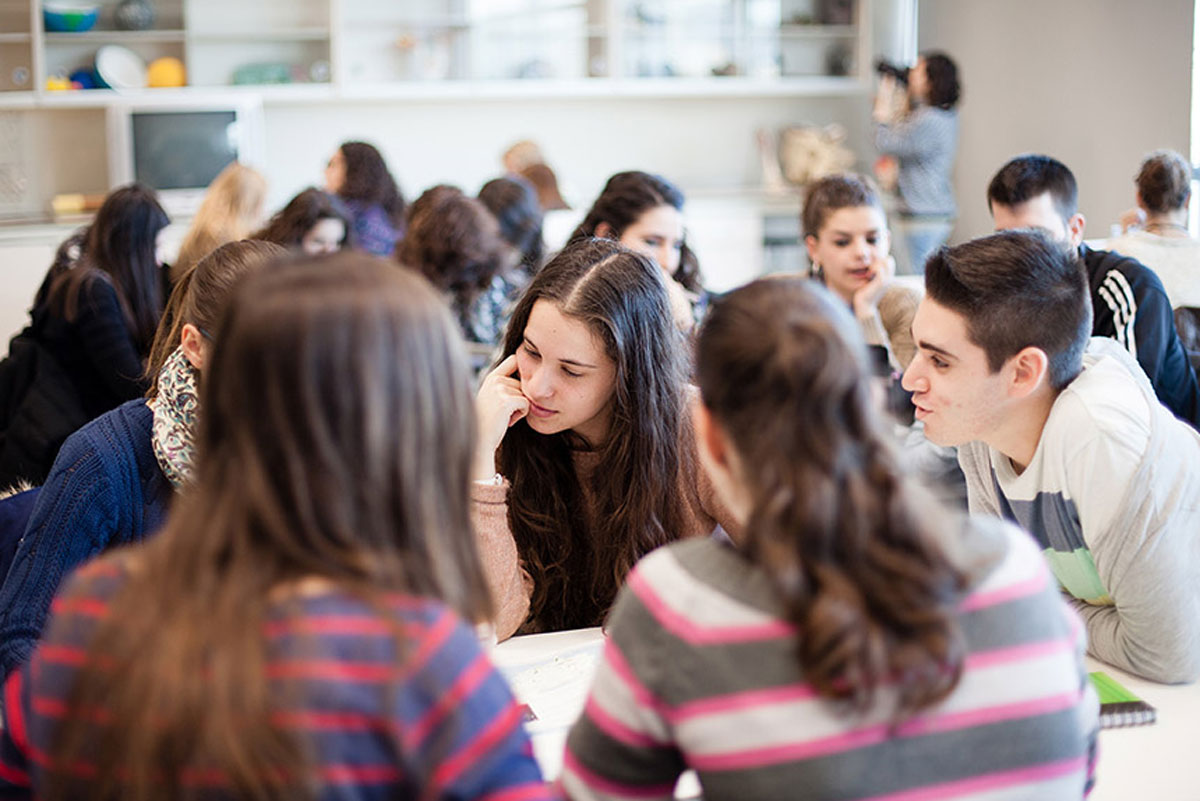Synthetic biology and artificial life: a debate in the Universitat de València
- Mètode
- November 8th, 2018

What is synthetic biology about? Some experts will try to answer this question through an open debate framed within BioRoboost European project opening. Mètode journal has the report of the meeting.
What is synthetic biology about? What is the difference with genetically modified organisms? Does synthetic biology application involve a risk to people’s health or to the environment? In which development status is this emerging field in scientific research found? These questions and others were arisen in the “Synthetic biology and artificial life” round table celebrated on Tuesday 30 October at The Sapiència Chapel in La Nau. The debate was part of the opening meeting of the BioRoboost European Project held on 30 and 31 October at the CSIC Science House in València. BioRoboost is funded by the European Horizon 2020 Project. 27 North-American, Asian and European members –among which the Institute for Integrative Systems Biology (I2SysBio) of the Universitat de València is found– will take part in the project.
Víctor de Lorenzo, researcher in the National Centre of Biotechnology – CSIC; Ana Delgado, professor in the TIK Centre for Technology, Innovation and Culture of the University of Oslo; Luis Serrano, head of the Genomic Regulation Centre (CRG) of Barcelona; María Lluch, researcher in the CRG; and Cristina Vilanova, scientific director of Darwin Bioprospecting Excellene Valencian Company were responsible for trying to answer the questions. Manuel Porcar, researcher in the I2SysBio conducted a debate where the audience took an active part with questions and reflections.
A very cautious definition
Some key issues of synthetic biology are its definition and differences with a very important and close area of it: genetic engineering. In this sense, those involved in the debate brought different nuances. According Víctor de Lorenzo,
synthetics biology is mainly about “approaching to living systems from engineering” and considerate its functional logic so that “everything that nature has not done” can be programmed. Meanwhile, Luis Serrano suggested that “designing a living being from scratch”, that has not existed before, would mean “a synthetic biologist’s dream come true” although it is a distant goal.
According to debaters’ discussions, controversy that usually involves genetically modified organisms, common negative connotations of artificial and ideological baggage that may arise from dealing with the design of living beings are all major issues in terms of defining synthetic biology and sharing it with people. Manuel Porcar quoted Kenneth Oye, professor in the MIT, and said that synthetic biology term “seems to be created to spark controversy”. The desired goal is to avoid social rejection of the term before the discipline actually takes off, but “many debates like this one will be needed” in order to achieve that, Porcar stated.
Social perception versus scientific reality
The emergence of a new technology always gives rise to new questions and concerns: what effects can have an artificially created organism in case it is “released” into the wild? Is it possible to create an intelligent living being from scratch? These questions seem to be very far from today’s synthetic biology. In the words of Víctor Lorenzo, it is a “very young” discipline which is still trying to fill some biological knowledge gaps. Luis Serrano agreed on this and pointed out that artificial intelligence will be sooner achieved through robotics than through synthetic biology. “Although we may desire it, it is difficult to design an organism to strike down mankind” he added in humorous terms.
It was also brought up that potential effects of realising an artificial organism into the wild may be very similar to those of realising a natural one. María Lluch, from the Design Team of Biological Systems of the CRG, reminded that, nowadays, bacteria are used to achieve goals crafted by humans –for example, vaccines– and biosecurity measures are always adopted to control the tasks of those organisms. In this sense, she stated that updating computational models may be a future perspective i.e. designing cells with a computer to analyse the potential viability of the models, which will be cheaper and safer.
Ana Delgado emphasised that synthetic biology origins are part of movements in favour of free and open knowledge, “a new way of making biology” that promote sharing information in support of progress and transparency, issues that can have a positive impact on public perception of the discipline.
First of all, bacteria
Ana Delgado suggested that there may be hype or overexcitement on synthetic biology short-terms achievements, which other debaters agreed. While it had been stated that artificial bacteria cause catastrophes in the environment, Víctor Lorenzo, recently working on biological regeneration projects through bacteria usage, explained that it is sometimes difficult to make released bacteria to degrade pollutants since “they are not effective at all” so far.
María Lluch explained her current research on so-called “minimum organisms”, through which solutions to diseases such as lung ones are expected to be found by studying them. According to her, “bacteria engineering may be a new way of therapy”. Luis Serrano concluded that “this can be a helpful field to achieve a new type of society since it also allows a revisit of chemical products on which it bases.” Therefore, a field as full of challenges and possibilities as life itself.
File in: Projectes Europeus , Parc Científic , Cultura Científica
















